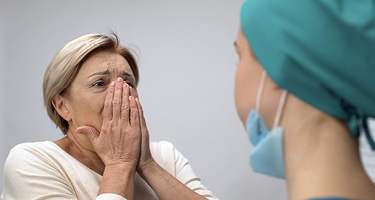International multi-centre clinical trials very often require cross-border flows of biological samples. These flows are intended to transfer the samples to the central laboratories, which may not necessarily be in the same country as the investigating centres that collected the biological samples. In order to carry out such flows in the context of a clinical trial, it is not necessary for French or foreign sponsors to obtain an import and/or export authorisation issued by the French Ministry of Research. It is important to bear in mind that biological samples taken for the purposes of a clinical study protocol and used in this context are not subject to the legal provisions governing the preparation and storage of biological samples intended to be used for research purposes. This exemption regime is provided for in Articles L. 1243-3 and L. 1243-4 of the French Public Health Code. Consequently, the provisions of paragraphs 4 of sections I and II of Article L. 1245-5-1 of the French Public Health Code, which require the authorisation of the French Ministry of Research prior to the import and export of biological samples, should not be applied to these samples. The exemption for samples taken in application of a study protocol is explained by the nature of the activities carried out with these samples.The protocol of a clinical trial may provide that biological samples will be collected for the trial. These may include blood samples, biopsies, or other biological material samples or collections. The purposes of these samples may be varied, but their primary purpose is to determine the biological characteristics of an individual, to narrow or confirm a diagnosis, to assess metabolic function, toxicity or concentration of a tested product, etc. These biological samples enable medical biology examinations to be carried out in the specific context of a clinical trial. Samples taken in the context of a clinical trial (pre-analytical phase) are analysed by a laboratory (analytical phase) and then communicated to the investigator or sponsor for contextual interpretation (post-analytical phase) specific to the clinical trial.These three phases characterise the conduct of a medical biology examination as defined in Article L. 6211-2 of the French Public Health Code.In accordance with section 8.4.9 of the French version of the Good Clinical Practices (GCP) set by the decision of 24 November 2006, these analyses must be carried out in accordance with the guide for the proper performance of medical biology analyses as defined by the decree of 26 November 1999 relating to the proper performance of medical biology analyses (“l’arrêté du 26 novembre 1999 relatif à la bonne exécution des analyses de biologies médicales »).
The GCP provide in fact that the "Trial Master File" must contain a summary document for each person involved in the trial. If this document has been drafted by the biologist as advised by the decree of 26 November 1999 relating to the proper performance of medical biology analyses, it must indicate:
- the different results with the date and time of sampling and the time of performance of the tests,
- control sample results with the same time series information,
- any comments and incidents that may have occurred.
n the case of clinical trials, it is often decided to entrust a so-called "central" medical biology analysis laboratory with carrying out the analytical phases imposed by a protocol. When there are several investigation sites, all the samples taken at these investigation sites (pre-analytical phase) which are spread over different health care institutions in different countries may be centralised at one or more medical biology analysis laboratories. As a consequence, when these central laboratories are located abroad, this implies cross-border flows of samples. These flows are covered by legal provisions which do not require prior authorisation. These provisions are covered by Article L. 1245-5-1 of the French Public Health Code (CSP) and in particular paragraphs 3 of I and II thereof, which concern flows within the EU or with EEA Member States and those outside the EU or EEA respectivelyFor example, paragraph 3 of section I of Article L. 1245-5-1 of the French Public Health Code (flows within the EU or with EEA Member States) provides as follows :"Only persons whose activity involves medical biology examinations, anatomical and topical pathology examinations, forensic expertise or quality control or evaluation, in particular of in vitro diagnostic medical devices, may obtain biological samples from a Member State of the European Union or a State party to the Agreement on the European Economic Area. Similarly, only these persons may provide these samples to an approved establishment in a Member State of the European Union or a State party to the Agreement on the European Economic Area.” Therefore, medical biology laboratories involved at the request of a sponsor in a clinical trial may import and export biological samples ("only persons whose [...] may") without specific authorisation. Paragraphs 3 of sections I and II of Article L. 1245-5-1 must therefore be analysed in comparison with paragraphs 4 of sections I and II, which require authorisation from the Minister responsible for research ("Only bodies authorised by the Minister responsible for research may") to obtain (import) or provide (export) biological samples for scientific purposes. Thus, it appears that cross-border flows of biological samples carried out within the framework of a clinical trial are not subject to prior authorisation by the Ministry of Research. Finally, it should be recalled that the flows of samples carried out for the purposes of a clinical trial are detailed in a study protocol, which is authorised by the competent authorities in the field of clinical research and in particular by the ANSM (French National Agency for the Safety of Medicines and Health Products).Is it really useful to increase the number of administrative authorisations to allow cross-border flows of biological samples which are necessary to conduct clinical trials ?
















